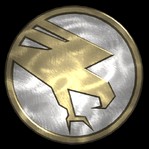The Swiss army will concentrate its efforts back on defending the country, army chief Thomas Süssli said at a media conference at which he explained the army’s future direction.
Russia’s attack on Ukraine was a real turning point for security in Europe, Süssli told the media on Thursday. This return to power politics has led to many countries re-arming more and more, he said.
“However, the Swiss Armed Forces are a product of the Armed Forces Reform 21,” Süssli said. At that time, the army was clearly oriented towards protection tasks and troop numbers were reduced. “But now we are seeing a clear deterioration in the security situation.”
For this reason, Süssli wants to refocus the army on defence. “We want to increase the defence capability,” he said. How this is to be done is summarised in a report.
Unlike in quiet times, in this report the army refrains from reforms aimed at a specific year. These would have no effect because the environment and technology are constantly evolving. Instead, it wants to focus on “adaptive further development” in the coming years: on small steps that can be implemented more quickly.
Combat training abroad
Süssli also called for greater international cooperation, especially with NATO, the EU and neighbouring countries. In this way, Switzerland could make a contribution to security in Europe.
What’s more, he believed it was important to strengthen Swiss ground forces. “A battle in Switzerland would unavoidably also take place in urban, built-up areas,” he said. However, the military bases in Switzerland tend to represent a rural Switzerland.
For this reason, Süssli wants to send Swiss soldiers abroad, where more urban training facilities are available. However, such training would have to be carried out on a voluntary basis because, according to current law, Swiss army personnel cannot be obliged to take part in courses abroad.
Süssli was optimistic that a first battalion of volunteers would be found for an exercise abroad. However, he said, the army was also looking into building its own facility. Not yet approved
Cyber and espionage defence is also to be strengthened. Furthermore, the army is examining whether it should use old systems longer than planned, for example Stinger missiles, anti-tank weapons, mine launchers and vehicles.
“We are examining what we should keep. A lesson learned from the Ukraine war,” Süssli said.
Politically, the plans for better defence capabilities have not yet been approved. However, the report is to form the basis for the drafting of the Dispatch on the Armed Forces 2024. The price tag is likely to cause discussion: in a first step, the army wants CHF13 billion ($14.8 billion) for 2024 until the 2030s.
What was it until now, focus on offense? For Swiss? Why?!
Until now it was defense and now it will be much more defense.
It’s tough to focus on defense when you’re busy making knives
Swiss politic should stop to harm its defense industrial base. Otherwise the army might be left with SAKs only.





